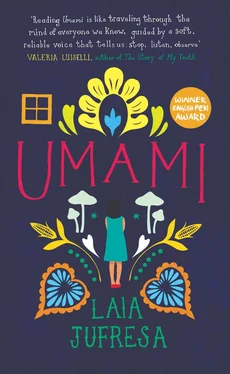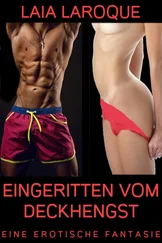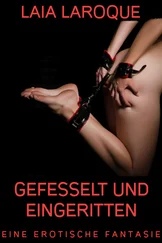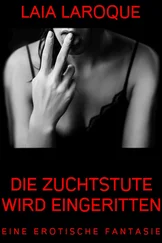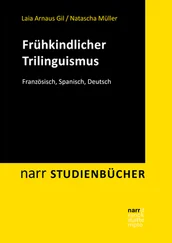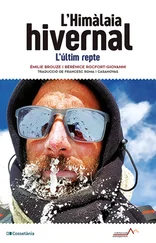‘A,’ he says, still scratching.
‘Almond,’ says the girl.
The boy stops scratching.
‘Almond isn’t a name,’ he says.
‘Uh-huh, I know, sorry. I just got nervous.’
‘Only names, got it? That’s the last time I stop before the second z, OK?
‘OK,’ the girls say together.
Pina says it too, with a nod, but luckily no one notices. The boy starts to scratch again.
‘A,’ he says.
‘Alma,’ she says.
‘B,’ he says.
‘Berta,’ she says.
‘C,’ he says.
‘Claudia,’ she says.
The boy goes into a trance, scratching the same spot, at the same speed, and reciting the letters of the alphabet. The girl, by contrast, becomes more and more fidgety. She squirms, but without moving her hand, which the boy is holding onto. She reminds Pina of those butterflies fixed to the bottom of frames with a single pin. When they get to m, the girl raises her voice (‘Monica!’), but doesn’t take her hand away. She hesitates at p and Pina wants to whisper her own name to her but she doesn’t dare. Whenever she tells people her name they look at her funny.
‘Paula!’ the girl says, and the game goes on.
‘Q.’
‘Queta!’
‘R.’
‘Rocío.’
‘S.’
‘Savior’
The girl’s friend wrinkles her nose and asks Pina under her breath, ‘Savior?’
Pina shrugs. The boy goes on reciting the alphabet and scratching, doing his best to hold the girl’s hand still. She’s started to do little jumps. Pina and the friend get up and move in closer to see how the hand is doing: it looks pretty red under the boys nail. Not blood red, but definitely hives red.
They move on to boys’ names. Armando, Bernando, Claudio, Damián, Efraín, Fernando. The girl starts to cry. Her friend puts her hand on her shoulder.
‘Get out of here!’ the girl says to Pina.
Pina goes back to the bench. Of all the words the girl has said, ‘Get out of here’ are the only ones that aren’t a name, and the fact that they were directed at Pina makes her feel important. She realizes she still has the banana in her hand, all sticky between her fingers. She flings it into the bushes. Nobody notices.
By the time they reach Humberto, the girl has her neck cocked to one side with her eyes closed. Then the boy says i and her head pops up.
‘Idiot!’ and she pulls her hand from the boy’s clasp.
The friend sniggers but immediately shuts up again. The girl holds her right hand with her left and looks at it as if it doesn’t belong to her, as if she can’t understand where it came from. The boy still has his finger out, in position, but there’s nothing to scratch anymore.
‘Are you OK?’ asks the friend.
The girl wipes away some snot with her forearm.
‘You were almost there!’ says the boy, picking the blood out of his nail with the corner of his swimming shorts.
*
The swallows gather in the afternoons. Pina sits down on a lounger to watch them. At this time of day it smells less of chlorine and more of the flowers that hang from the trees like little open hands: purple and yellow. Pina imagines herself all grown up with flowers like that in her hair. She imagines admirers hot on her heels: the boys, now men, fighting over her. Fighting over who would get to take her flowers. It’s Sunday, and there’s hardly anyone left in the pool. Her dad is in the bungalow and her mom went out for a walk. Flights of swallows swoop down into the old chimneys on the main building’s domed roof. Pina is counting them, and if she gets to more than a hundred her parents will stay together; if she counts less than a hundred, they’ll split up.
A boy gets out of the water and walks toward her. Pina thinks he might start calling her names like the braid girl. She looks up at the sky, but even then she can tell the boy is approaching.
‘Hey,’ he says, and Pina immediately recognizes his voice.
He’s making her lose count and she doesn’t want to.
‘Wait,’ she tells him, and starts counting aloud so he gets it.
‘Eighty-four, eighty-five…’
The boy turns around so he’s facing the swallows too. His swimming trunks drip onto the flagstones, and in the pool’s reflection the birds multiply.
*
‘Ana, Berta, Carmen, Diana, Esther, Fernanda, Gema, H…, H…, Helena, Irma, Julieta, Karla, Luz, María, Natalia, Omara, Pina, Quintana… yes it is a name! Raquel, Sonia, Tania, Úrsula, Vicky, Wanda, Ximena, Yolanda, Zamuela… I don’t care, Armando, Bernardo, Carlos, Domingo, Eduardo, Félix, Gerardo, Horacio, Ilario, Jacobo, Kiko, Luis, Mariano, N…, N…, N…, Núñez, ouch! Nothing, Nobody, Nepal. Norberto? I give up! Octavio, Pedro, Quetzalcóatl, Raúl, Saúl, Tito, Uva… Uber… Under, I give up!’
The boy cleans his nail and Pina thanks him. They sit on the bench. He grabs her other hand and she immediately snatches it away. She doesn’t want to play again. The boy says he only wanted to take her hand, that’s all. But she knows you can’t trust anyone around here.
‘Do you know how babies are made?’ she asks him.
The boy gets up, disappears into the bushes and never comes back.
Pina hasn’t told a single lie all day, so why does she feel like a liar?
Luz turns three years dead today. Mom fixes herself up a bit (she lets her hair down) but is in a terrible mood. She burns the toast. I spill juice on the floor and she says, ‘Perfecto.’
When she goes to brush her teeth she complains that dad, who’s just shaved, has left hairs in the sink. Dad and I mutter to each other, ‘Patience,’ and when Mom finally announces, furious, that she’s not coming with us, I think we’re both relieved. Dad tries to convince her anyway, but she’s unswayable.
‘This year I have a stand-in,’ she says to him. And to me: ‘Pull up any weeds you spot, will you?’
Then she hugs me way too tight, as if she could pass on whatever it is I need to be her surrogate by osmosis.
‘Come on,’ I say from inside my headlock. ‘Let’s go say hi to Luz.’
But the name has an electric effect on her. In a flash, Mom lets go of me and walks off to her room, wrapping her hair back up in her rag. Today it’s the black silk one. It’s embroidered with silver flowers and in another lifetime it was her very special concert shawl. But tragedies take the shine out of objects. Ever since Luz died no one around here seems to care about clothes or furniture anymore. Not even the instruments seem to matter much. Utilitarian things: the cello, the piano, the timpani. Nothing but buoys.
*
I never knew my parents did this while we were away at camp.
‘Every year?’ I ask.
‘Every year,’ says Dad. ‘And we always stop by that flower stall there.’
He parks, gives me some money and I go by myself. In fact they’ve only come twice, which isn’t all that much. But the new life already feels old. We have new customs. The first time we went home without Luz I thought I’d never be able to walk into our room without expecting to find her there, playing with Bedtime Bear.
But now her bed is my chaise longue and Bedtime Bear is in a box someplace and I don’t ever expect to see her when I come home. If I think about her it’s to imagine what she’d be like now: she’d be eight. Pretty soon she’d be wearing a training bra and I’d have to explain to her what to do if she gets her first period in school. I’d show her how to tie her sweater around her waist just in case, and tell her not to panic if she spots a dark stain in her knickers, to keep cool and to come looking for me in my classroom. We would be in the same school by now.
‘And Luz,’ I would say to her, ‘don’t you listen to those girls who say using tampons is like having sex, because they’re eleven and they’re liars.’
Читать дальше
